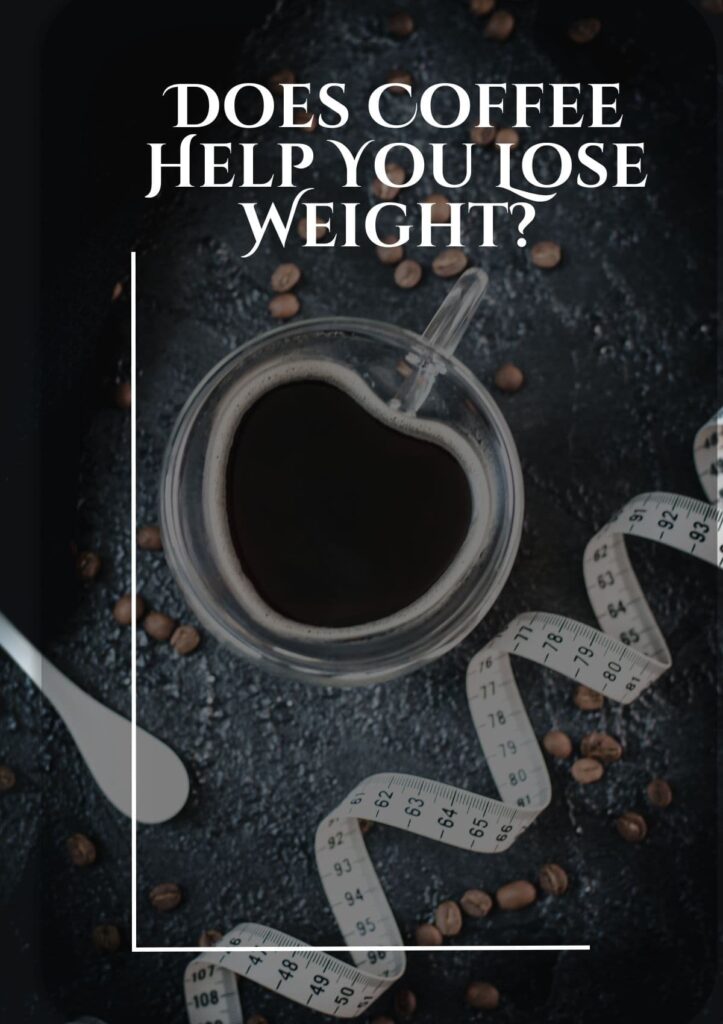Hello, caffeine comrades! After weeks of indulging in festive feasts and holiday treats, the New Year often greets us with a little more “too much”—too much sugar, too much lounging, and maybe just a touch too much around the waistline. But don’t worry; your trusty cup of coffee might just be the small but mighty sidekick you need to tackle those post-holiday resolutions.

Let’s set the scene: you’re staring down your January to-do list, sluggish and maybe feeling like you overdid it (because let’s be honest, we all did). And then there’s that comforting cup of coffee in your hand—warm, familiar, and packed with the potential to help you jumpstart your goals. Yes, that magic bean juice might just be the edge you need to step back into your routine.
No, coffee won’t magically erase the extra slice of pie or those late-night hot chocolates. But it does have some sneaky benefits that make it more than just your morning pick-me-up. So, grab a mug and let’s dig into how coffee can become your resolution’s best friend.
The Coffee-Weight Loss Connection: Myth or Magic?
Weight loss, as we all know, is a delicate balance of calories in and calories out. While coffee isn’t a magic potion, it’s packed with caffeine, a natural stimulant that’s been shown to help boost metabolism and enhance physical performance. Think of caffeine as your energetic coach, cheering you on from the sidelines and giving your body a little extra “go!”
Research—including a study published in the American Journal of Clinical Nutrition—has linked caffeine consumption to an increase in thermogenesis (that’s just a fancy word for the body’s heat production). Thermogenesis is part of how your body burns calories, and coffee can nudge this process along. Of course, results can vary, so don’t rush to brew a bottomless pot just yet. Moderation is key!
Caffeine and Your Metabolism: A Dynamic Duo
Caffeine works its magic by temporarily boosting your metabolic rate by up to 11%. It’s like giving your internal engine a little tune-up to burn fuel more efficiently. Plus, it enhances fat oxidation, which is a fancy way of saying it helps your body break down fat to use as energy.
Here’s the kicker: caffeine blocks adenosine, a neurotransmitter that makes you feel sleepy, and triggers the release of adrenaline. Adrenaline not only wakes you up but also amps up your metabolism and prepares your body to move. Translation? Coffee might just be the motivation you need to hit the gym—or at least tackle that New Year’s cleaning spree.

Black Coffee: Your Weight-Loss Wingman
Let’s talk about the coffee itself. If weight loss is part of your New Year’s goals, black coffee is your unsung hero. With zero calories, no added sugars, and a straightforward boost of caffeine, it’s the ultimate guilt-free brew.
Compare that to your favorite latte or a creamy mocha, and the story changes. Those indulgent beverages are often packed with sugar, cream, and other delicious-but-diet-busting extras. Of course, balance is everything—there’s no harm in savoring a caramel latte on a cozy weekend morning. But for your daily routine, sticking to black coffee keeps things simple and effective.
How Much Is Just Right?
When it comes to coffee, too much of a good thing can leave you jittery, anxious, and wide-eyed at 2 a.m. The sweet spot? Around 2-4 cups a day (that’s roughly 200-400mg of caffeine) is generally considered safe for most adults. This amount gives you the metabolic perks without pushing you into overdrive.
Listen to your body, though! If you’re sensitive to caffeine, start small and see how it feels. And remember, coffee isn’t a replacement for a balanced diet or a good night’s sleep—two crucial components of any health goal.
The Fine Print: Coffee’s Side Effects
As much as we love our java, it’s important to acknowledge that it’s not a one-size-fits-all solution. Drinking too much coffee can lead to side effects like increased anxiety, disrupted sleep, or digestive discomfort (yes, we’re looking at you, “coffee poops”). Keep an eye on how your body reacts, and adjust accordingly.

Pairing Coffee with Healthy Habits
Coffee might be a helpful tool, but it works best as part of a well-rounded plan. Here’s how to maximize its benefits:
- Stay Hydrated: Coffee is mildly diuretic, so pair each cup with a glass of water to keep your body hydrated.
- Fuel Smartly: Skip the sugary pastries and focus on whole foods like lean protein, fruits, and veggies.
- Get Moving: Use that caffeine kick as motivation to get active—whether it’s a workout, a brisk walk, or a dance party in your kitchen.
- Prioritize Sleep: Avoid late-night coffee binges to ensure you’re getting quality rest. Sleep is essential for regulating hunger and metabolism.
The Bottom Line
Can coffee help with weight loss? Absolutely… with a few caveats. It can boost your metabolism, give you energy, and support your workouts. But it’s no substitute for good habits like eating well, staying hydrated, and getting enough rest.
So, as you sip your morning brew, remember: it’s not just coffee—it’s a little cup of support for your New Year’s resolutions. And if black coffee isn’t quite your style, don’t stress—a touch of indulgence here and there won’t derail your progress.
Here’s to a year filled with energy, balance, and plenty of good coffee! Cheers!
More Recipes and Tips You Might Enjoy:
- Pour Over Coffee Recipe V60
- Cold Brew Ratio Guide
- How to make Iced Coffee with a French Press
- Mason Jar Cold Brew Coffee
- French Press Coffee
- Can You Make Cold Brew in a French Press
- Pumpkin Spiced Coffee – 2 Ways
- Can you Use Coffee Grounds Twice
- Freezing Brewed Coffee: Tips and Tricks
- Are Coffee Beans Cheaper than Ground Coffee
- What to Put in a Coffee Gift Basket
- Gifts for Cold Brew Coffee Lovers
- Can you put Hot Coffee in Glass
- How to make Blended Coffee at Home
- Home Coffee Equipment | Barista Basics & More



